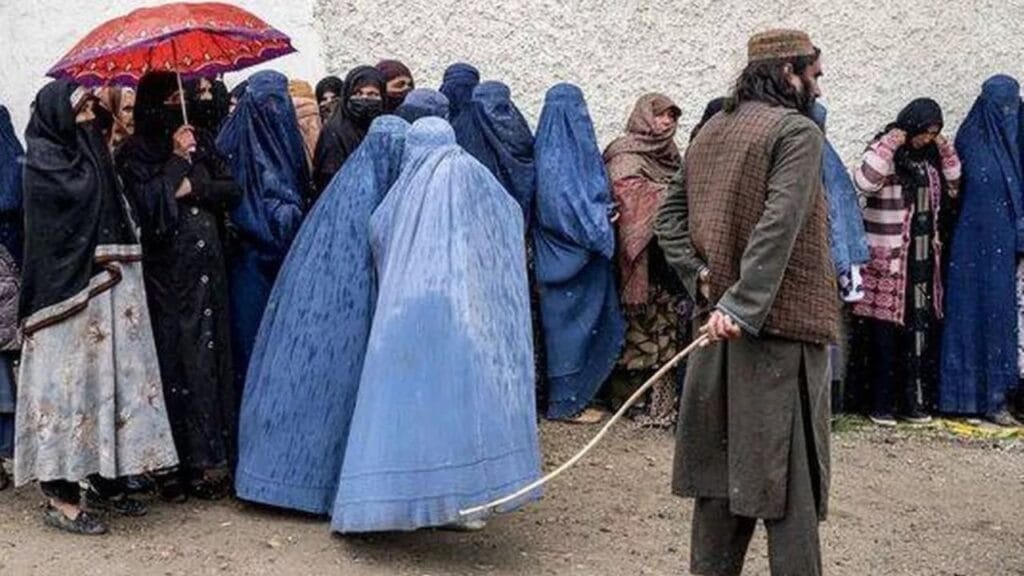By Najib Hamdard
A shocking case of child marriage in Afghanistan has stirred outrage worldwide after a 45-year-old man wed a six-year-old girl — an act so disturbing that even the Taliban, notorious for their harsh policies and repression, have condemned it.
The incident reportedly occurred in the Marjah district of Afghanistan, highlighting the alarming surge in child marriages following the Taliban’s return to power. Previously, Afghanistan had a legal minimum marriage age of 16, a reform introduced after the 2001 U.S.-led invasion. That protection is now gone, with the Taliban rolling back women’s and girls’ rights, leaving marriage laws subject to religious interpretations rather than fixed legislation.

Despite having removed the minimum age requirement and sidelining women from public life, Taliban officials were reportedly appalled by this particular marriage. According to U.S.-based Afghan outlet Amu.tv, the man — who already has two wives — was ordered by Taliban authorities to delay taking the child into his home until she turns nine. This ruling is based on the Taliban’s interpretation of Hanafi jurisprudence, which deems puberty as the threshold for marriage readiness, leaving no consideration for a girl’s consent.
In Afghanistan’s deepening economic crisis, child marriage has increasingly become a coping mechanism for desperate families, often trading daughters in exchange for money or goods — a practice known locally as walwar. The price of a bride is determined by factors such as her appearance, health, and level of education. In this case, reports say the groom paid the child’s family before marrying her, and both he and the girl’s father were subsequently arrested but not formally charged.
A resident interviewed by The Afghan Times described the grim reality: “Many families in our village have given away their daughters for money. People are desperate. No one is helping them.”

Statistics from Girls Not Brides paint a devastating picture: 28.7% of Afghan girls are married before they turn 18, while nearly 10% marry before the age of 15. A United Nations report from last year found that under Taliban rule, forced and child marriages have risen by 25%, driven by poverty and the regime’s restrictions on women.
Since reclaiming power in 2021, the Taliban have removed women from public life almost entirely. Girls have been banned from secondary education, while women are barred from speaking in public or appearing in most workplaces. They must cover themselves fully, have no access to gyms, public baths, or beauty salons, and are forbidden from spaces that once offered them community and support.
These measures not only strip women of independence but also place younger girls at greater risk of early and forced marriage. UNICEF, in a statement issued in March at the start of Afghanistan’s school year, warned of catastrophic consequences if the education ban continues.
“For over three years, the rights of girls in Afghanistan have been violated. If this ban remains until 2030, over four million girls will be denied secondary education,” UNICEF said. “This will have devastating effects on their health, well-being, and economic future, while worsening the country’s already fragile healthcare system. With fewer female doctors and midwives, thousands more mothers and infants will die from preventable causes.”
UNICEF estimates that an additional 1,600 maternal deaths and more than 3,500 infant deaths could occur due to the absence of trained female medical staff. “These are not just numbers,” UNICEF stressed, “they represent lives lost and families shattered.”
The six-year-old girl at the center of this story, her life already altered by forces far beyond her control, symbolizes the grim reality facing millions of Afghan girls whose futures are being stolen before they even begin.






